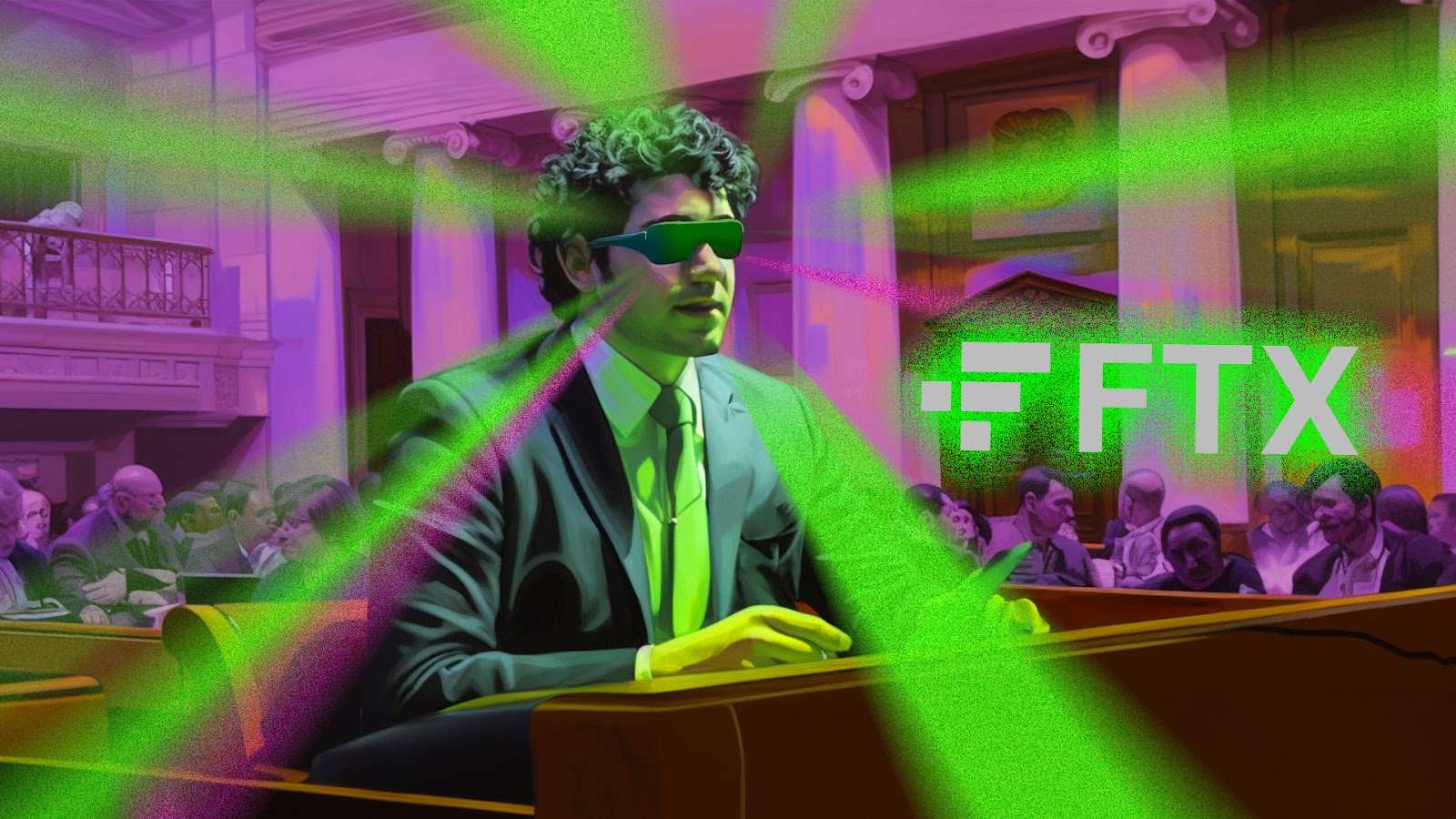
After over three weeks of prosecution onslaught, disgraced FTX founder Sam Bankman-Fried has finally had his turn to speak-up.
Yesterday - October 26th- saw Manhattan courtroom antics continue as defendant Sam Bankman-Fried (SBF) began testifying on his seven charges of conspiracy to commit fraud and money laundering (all of which he pleaded not guilty to).
SBF took to stand in the second half of the day, after the prosecution’s final witness in the case was excused. Such figure was FBI agent Mark Troiano, in whom the prosecution called-on to provide insights into the existence, nature, and authenticity of ‘Signal’ group chats involving the defendant.
After Troiano’s testimony and cross-examination had ended, courtroom reigns were then handed-over to the defence… with none other than SBF kicking things off.
SBF Courtroom Words
SBF’s words from yesterday largely fell into two categories; with the first being a provision of insights into the way in which FTX operated, and the second being his insistence that his actions were driven by a sincere belief in their legality.
As any guilty party would, SBF referred to a lack of recollection on multiple occasions, despite Judge Kaplan continuously emphasising the importance of providing direct responses to the questions posed.
Interestingly enough, none of the jurors were there to hear SBF speak, as they’d been excused prior to his testimony commencing. Per the words of Judge Kaplan, this came to be through the fact that the government had demanded that jurors shouldn’t hear certain parts of SBF’s testimony (although we’re still unsure as to which parts they’re referring to here).
Anyhow, initiating the SBF-directed questions was lead defence attorney Mark Cohen, who began by asking his client about the communication methods FTX used. In response, SBF mentioned Telegram, Slack, and Signal as the company’s primary modes of communication.
SBF then provided insight into the security concerns that the company faced whilst being headquartered in Hong Kong, which included the likelihood that employees may have been selling data to the exchange’s competitors. Additionally, he was able to confirm that FTX had never been hacked at its core, however some third parties had experienced breaches.
SBF’s testimony - as well as his cross-examination - also delved into discussions surrounding document retention, and how 288 of SBF’s 300+ Signal groups (between 2021-2022) had auto-delete features active. With Kaplan and Cohen lasered-in on the issue of ‘document retention policy’ compliance, SBF insisted that auto-deleted chats were typically used for non-decision-making conversations.
The touchy subject of ‘North Dimension’ then arose - which is an Alameda-launched fund that’s suspected of being a ‘shadow entity’ for money laundering purposes.
With FTX not having a bank account during the time in question, SBF denied knowing why FTX began funnelling money from an Alameda bank account to North Dimension. Additionally, he claimed that FTX lawyer Daniel Friedberg had provided him with the required documents for such endeavour, which he later signed.
Here, banking application documents for the North Dimension bank account were presented during SBF’s cross-examination, which also featured Friedberg’s personal signature.
Pivotally, SBF went on to express his belief that taking FTX customer despots through Alameda Research was legal - and that this was a consensus he’d acquired through FTX lawyers approving certain aspects of his policies.
Overall - and in placing blame into the hands of others - SBF insisted that FTX attorneys played a major role in determining the policies of his now-defunct crypto exchange.
The SBF Cross-Examination
The SBF cross-examination was led by US prosecutor Danielle Sassoon. As previously alluded to, it aimed to shed light on various aspects of the case, including the alleged misappropriation of customer funds, as well as the questionable communication practices of FTX and its subsidiaries.
With regards to the latter here, Sassoon asked SBF if any of his auto-deleted Signal chats hosted conversations that acknowledged the $13 billion hole in customer funds - in which he responded ‘probably’ whilst eliciting an unproductive aura of uncertainty.
Perhaps in referencing his lack of access to his adderall prescription, the cross-examination also featured instances of SBF apologising for not understanding or incorrectly answering the questions put forward to him.
In a throwback to his school days, this even led to Judge Kaplan urging him to listen to the questions and provide direct answers.
And in making matters even more contentious, courtroom momentum was also slowed by SBF’s frequent use of the word ‘contemporaneously’ - something which reportedly frustrated both the prosecution and Sassoon.
On the opposite side of the face, Cohen and his defence team were getting increasingly unhappy with the persistent questioning taking place, which further led to multiple objections, as well as Cohen describing the cross-examination as resemblant of a deposition.
In all, such proceedings lasted around three hours, with the court set to reconvene on October 27th.
What’s Next For SBF
In addition to SBF’s ongoing testimony, additional witnesses such as Krystal Rolle and Joseph Pimbley are waiting to take the stand.
Here, Rolle’s testimony is expected to provide insight into a meeting between SBF and Bahamian regulators in November 2022, whilst database expert Pimbley will be questioned on data related to credit balance letters.
As of now, the trial outcome - and therefore SBF’s exact custodial fate - remains unclear, however a final verdict is expected before Thanksgiving (Thursday 23rd November).
Want More Cutting-Edge Crypto News?
Follow Us: X TikTok Instagram Telegram LinkedIn
Sign up to our newsletter at the bottom of the page
Check Out Our Top 10 Crypto Currencies of 2023
This article is intended for educational purposes and is not financial advice.


















